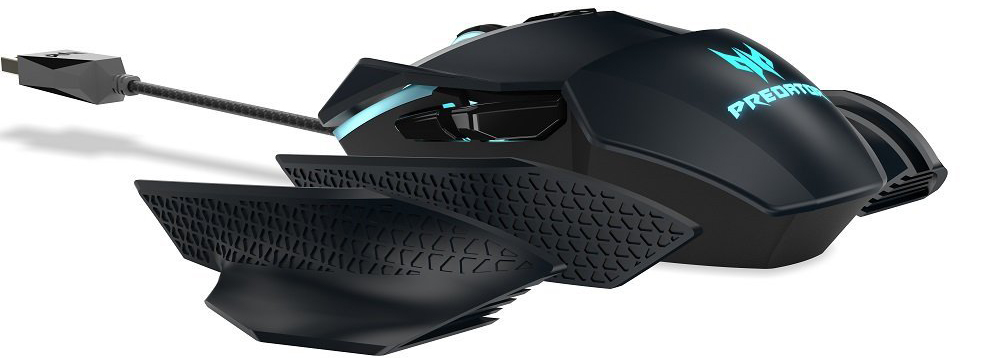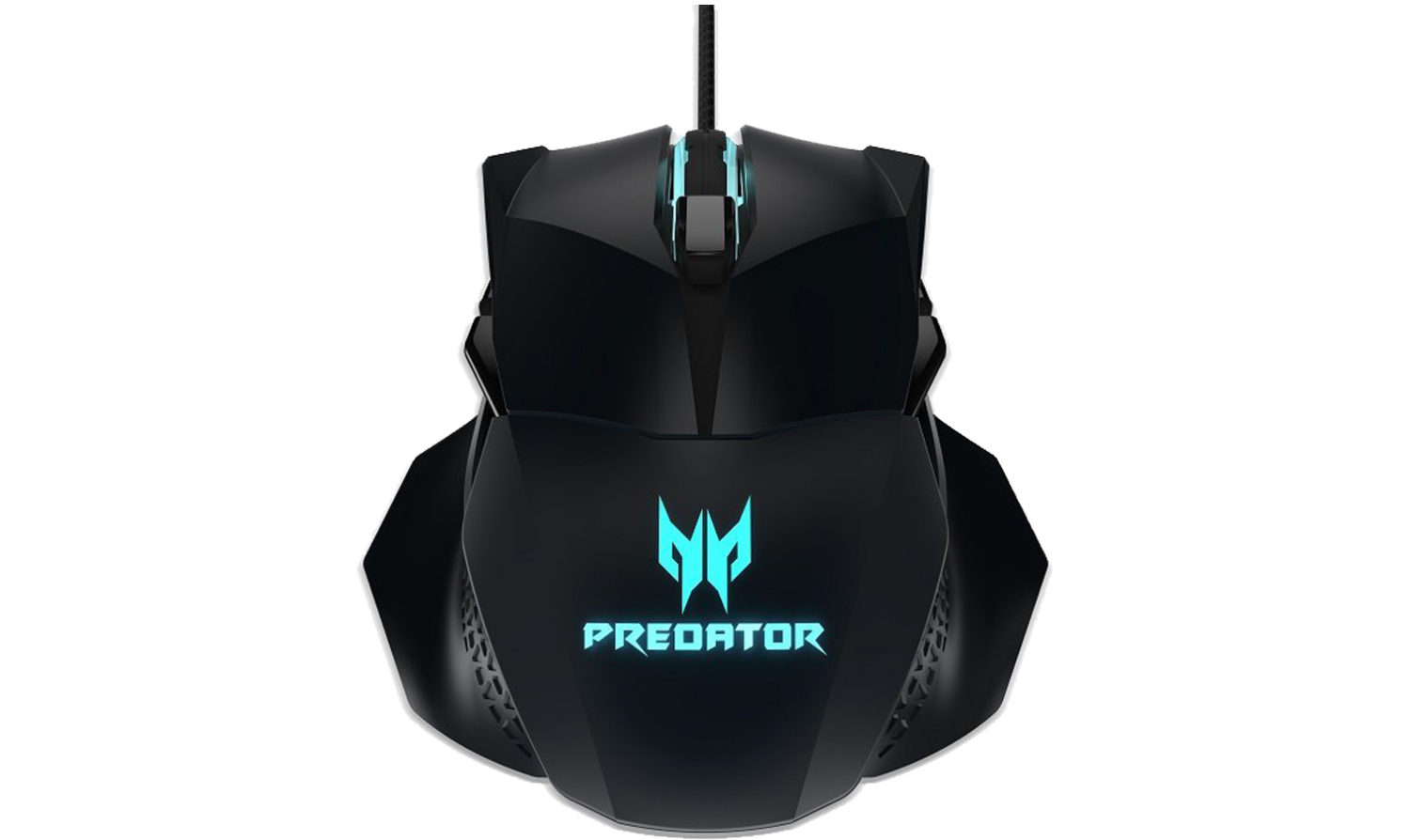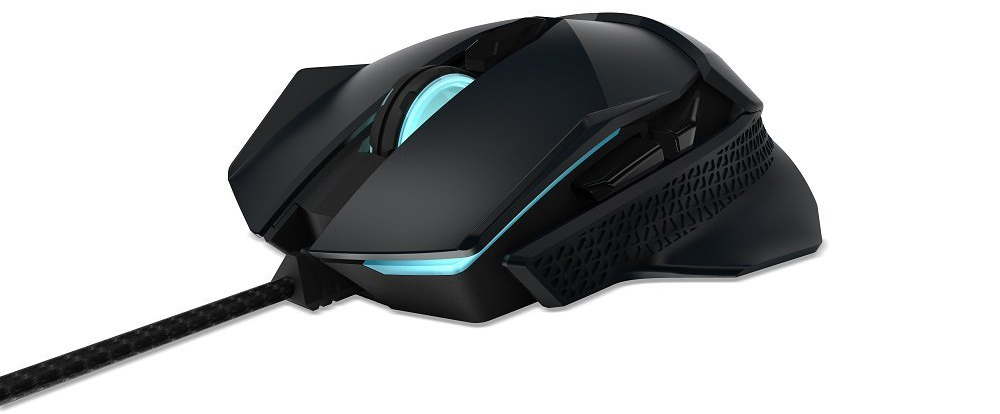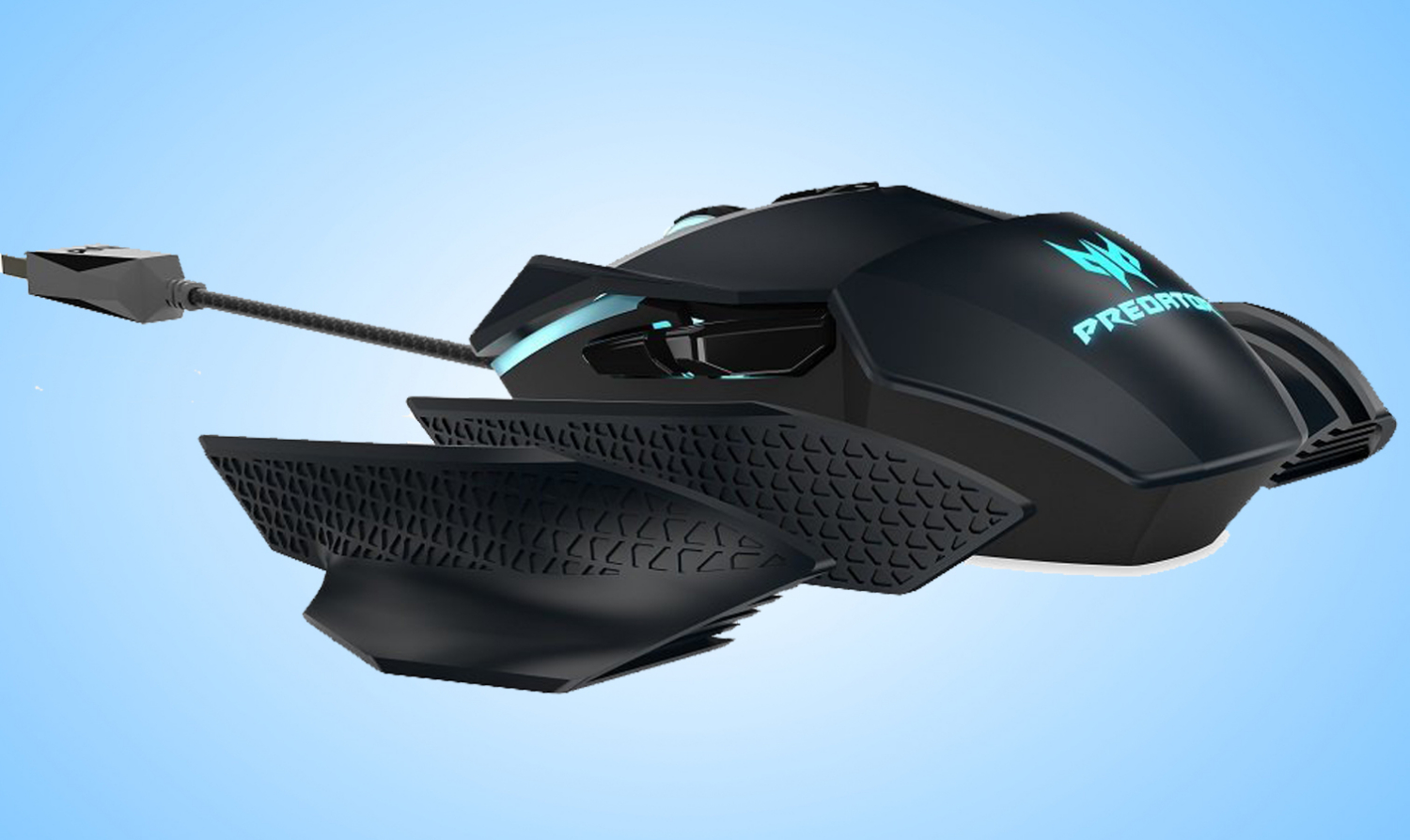Tom's Guide Verdict
The Acer Cestus 500 is a perfectly good pack-in mouse for new Acer systems, although it's also worth considering the Logitech G502 Proteus Spectrum and the SteelSeries Rival 600, if you can spend a little more.
Pros
- +
Fairly comfortable
- +
Good performance
- +
Ambidextrous
Cons
- -
Unnecessary extras
- -
Unattractive design
Why you can trust Tom's Guide
A cestus is a type of ancient gauntlet, worn during battle and often reinforced with leather, iron or even spikes. In other words: Once you put a cestus in your grip, you become pretty deadly. That seems to be the inspiration for the Acer Predator Cestus 500 gaming mouse ($100 MSRP; $60 at most retailers).
The Cestus 500 has competent software, competent backlighting and customizable features that rival anything more established peripheral manufacturers put out. But it also has unattractive angles, cheap-feeling buttons and some superfluous features. Like Acer's other peripherals, you should absolutely keep the Cestus 500 if it came as a pack-in with your new PC, although it's still worth considering other peripherals in the same price range.
Design
The Cestus 500 is an angular beast, with two sharp edges on the top half and a large, elevated palm rest on the bottom. The Predator logo and branding are prominent on the bottom. The whole thing looks like the breastplate that a high-fantasy villain might wear, although for all that, it's fairly comfortable to hold.

However, palm-grip players probably won't like the sharp angles on the left- and right-click buttons, since you can't lay your fingers flat against them. The protrusions near the left- and right-click buttons also limit how far you can splay your fingers. It's a little obnoxious since there's no real benefit to any of the angles; it's sacrificing utility for looks.
There are eight buttons altogether: a left button, a right button, a clickable scroll wheel, a dots-per-inch (DPI) sensitivity adjuster and four thumb buttons: two on either side. One forward-thinking thing about the Cestus 500 is that it's completely ambidextrous. Frankly, more high-end mice should embrace both right- and left-handed players, so the Cestus 500 might be worth a look from sinistral gamers.
The Cestus 500 looks like the breastplate that a high-fantasy villain might wear, although for all that, it's fairly comfortable to hold.
The Cestus 500's magnetic, swappable sides also help its ambidextrous design. You can choose between a flat side, or an extended rest or mix and match. This means that a left-handed player could have a flat panel on the left, and a thumb rest on the right — a situation that's so rare, I can't think of another mouse off the top of my head that offers it. Just be sure that your mouse includes both sets of panels; Acer forgot to pack the flat panels in ours. (We contacted the company, where representatives assured us that this was an extremely uncommon packing error.)

Users can also customize the click resistance on both the left and right buttons, which is a feature I've seen only once or twice before. By flipping two switches on the underside of the Cestus 500, you can give each button a softer resistance (20M) or a harder resistance (20M). The two modes don't feel incredibly different from one another, but it could extend the life span of the mouse considerably. (The "M" stands for "million clicks.")
Features
The most noteworthy features of the Cestus 500 are the magnetic side panels and variable switches, as discussed above. However, they don't have a tremendous amount of impact on the minute-to-minute performance of the mouse. On the other hand, you can do a few interesting things with the Predator Quartermaster software, from customizing profiles to setting up lighting options.
Like competitors from dedicated peripheral manufacturers, such as Logitech Gaming Software or Razer Synapse, the Quartermaster can manage multiple Acer accessories at the same time, which is helpful if you have a full suite of devices. For the Cestus 500 specifically, you can customize button assignments, link games with individual profiles and play with a limited suite of lighting options.

Compared to elegant and extensive RGB profiles from companies like Logitech and Corsair, the Cestus 500 feels distinctly limited. You get the standard options — spectrum cycling, breathing, etc. — but you can't control the speed, which means the LED strips underneath the left and right buttons often flash way too fast. The lighting feels distracting rather than calming on most of the specialized settings. However, the static lighting is pleasant, and the colors are bright and distinctive.
MORE: Acer Predator Mouse Review: OK, But Could Be Better
Beyond that, though, the software is competent, and actually much better than I've come to expect from manufacturer-specific programs. With a little more work, the Quartermaster software could stand toe-to-toe with the best of them.
Performance
I tested the Cestus 500 with Overwatch, StarCraft: Remastered, Baldur's Gate: Enhanced Edition and World of Warcraft to evaluate its performance across a variety of genres. Thanks to a high-quality sensor and some granular options in the software, the mouse was equally adept at rolling Wrecking Ball around a battlefield or marshaling Terran soldiers against the forces of the Dominion.
Thanks to a high-quality sensor and some granular options in the software, the mouse was equally adept at rolling Wrecking Ball around a battlefield or marshaling Terran soldiers against the forces of the Dominion.
There's only one significant complaint about the Cestus 500's performance that comes to mind: the mouse buttons. In placement and in shape, the Cestus 500's extra buttons are just fine, but they feel extremely plasticine and cheap. It's a strike against what would otherwise be a useful feature.
Bottom Line
The Cestus 500 is one of the better peripherals Acer has put out so far. For about $20 more, you can get the similar-but-superior Logitech G502 Proteus Spectrum ($80), or the SteelSeries Rival 600 ($80). Granted, you won't get the customizable switch pressure, the swappable side panels or the ambidextrous design (lefties should look into the $80 Razer Lancehead), but in my experience, those novel features didn't make or break the Cestus 500.
At the very least, if you've just bought a new Acer machine, the Cestus 500 is a perfectly good pack-in mouse. A few more iterations, and Acer might just have something that's worth seeking out on its own.
- Don't miss our Acer Aspire Z24 review
Marshall Honorof is a senior editor for Tom's Guide, overseeing the site's coverage of gaming hardware and software. He comes from a science writing background, having studied paleomammalogy, biological anthropology, and the history of science and technology. After hours, you can find him practicing taekwondo or doing deep dives on classic sci-fi.


